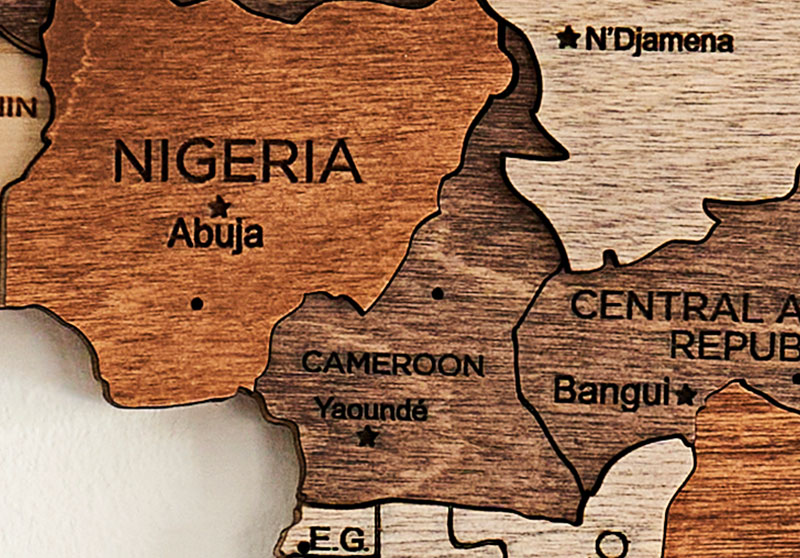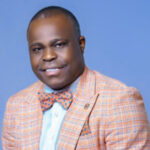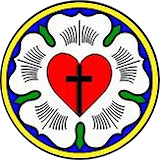Christianity needs to keep its universality while ensuring that it stays relevant in specific cultures.
The Christian faith is supracultural and suprahistorical. The gospel was given to all peoples everywhere in every generation. This makes Christianity a universal faith. However, God intends that this universal faith finds expression in all cultures of the world irrespective of their peculiarities. This highlights the local or contextual dimension of the faith. It follows that Christianity is both universal and local. The dynamic tension between the universal and local dimensions of Christianity is precisely what demands contextualization. To remain true to its nature, Christianity needs to keep its universality while ensuring that it stays relevant in specific cultures.
This article investigates the state of contextualization in Cameroon. It seeks to answer the following questions: ‘Have evangelicals of Cameroon attempted to make Christianity contextually intelligible? If yes, what is the nature and extent of the attempt?’
The Various Meanings of Contextualization
Since Shoki Coe coined the term in 1972, contextualization has been variously defined. In this article, I look at contextualization as an out-context (inside-out)[1] approach of the Christian faith in host cultures which I describe as the context-emergence approach. I call this ‘ex-contextuation’. This approach highlights the incarnational emergence of the expressions, forms, and practices of Christianity from inside a context. It is an emic[2] and endogenous[3] approach that allows Christian thoughts and practices to emerge from a context. It is rooted in a context and draws from that context to express the Christian faith, whether this expression is theological, liturgical, pastoral, etc.
Contextualization as ex-contextuation arises from a dynamic understanding of biblical truths that are expressed taking into account the contextual realities of a host culture. Ex-contextuation may be initiated by native Christian leaders who have the ability for self-theologizing—the capacity to critically engage the Bible to construct theologies that are both biblical and contextual. However, missionaries with a profound emic understanding of a local context may as well initiate the process.
Contextualization as ex-contextuation arises from a dynamic understanding of biblical truths that are expressed taking into account the contextual realities of a host culture.
I distinguish ex-contextuation from an in-context (outside-in) approach that often characterizes some missionary endeavors and negates the very essence of contextualization. I describe the in-context approach as the context-insertion approach. I call this ‘eis-contextuation’. This approach captures the understanding that expressions, forms, and practices of the Christian faith are brought from one context (the West for instance) and adapted into another context. It allows the adaptation of foreign Christian thoughts (eg theology) and practices (eg liturgy) from the culture of a missionary in a host culture. This approach is etic[4] and exogenous.[5]
I contend that the context-emergence approach is a better approach in an attempt to translate the Christian faith in human cultures when done critically. This seems to be the most appropriate way for cultures to understand the Christian faith, which is expressed in sync with their inner logic and worldviews. In this sense, ex-contextuation may be the path that enables each culture to customize, indigenize, and clarify the meaning of the confession that Jesus is Lord.[6] My evaluation of contextualization in Cameroon will be done from this perspective of ex-contextuation.

Geographical, Sociocultural, and Religious Landscape of Cameroon
Cameroon is a country niched in the Central African region. Officially known as the Republic of Cameroon, it covers over 475,000 square kilometers of surface area and hosts about 25 million inhabitants. Harboring close to 260 ethnic groups, Cameroon is a great mosaic of population, socio-cultural, ethnic, and linguistic diversity.
Although Cameroon is a secular state, its religious landscape is rich and variegated, with African traditional religions, Islam, and Christianity being dominant. Regarding Christianity, Roch Ntankeh observes that 70% of the Cameroon population ‘claims to be Christian.’[7] Dominant Christian traditions in Cameroon include Roman Catholics, Adventists, and Protestants. The Protestant tradition incorporates families such as Calvinists, Lutherans, Baptists, Methodists, Anglicans, and Pentecostals or Charismatics. Most of these Protestant families belong to the evangelical movement at large. In this article, the term ‘evangelicals’ refers primarily to these Protestant families.
Contextualization in Cameroon
In my view, the evangelicals’ attempt to translate the Christian faith into local Cameroonian cultures predominantly falls under ‘context-insertion’ rather than ‘context-emergence’. This orientation is noticeable in various dimensions of evangelical expressions of the Christian faith such as the kerygmatic, liturgical, and theological dimensions.
1. The Kerygmatic Dimension
By kerygmatic I mean what pertains to preaching/teaching. My observation is that, in general, both the content of the gospel and methods of its transmission in many evangelical churches of Cameroon are largely in sync with overseas Western mother churches. Take the case of Église Presbyterienne du Cameroon (EPC) for instance. According to Cameroonian missiologist Sap Jean Duclaire, the catechisms and tenets of faith that are currently used in EPC, even those translated into Bassa (a native tongue of Cameroon), are, with few exceptions, a replicate of their Calvinist Westminster counterparts.[8]
Although many Cameroonians have assimilated much of Western thinking, a great proportion of Cameroonians still maintain their epistemic and cultural identities.
In many evangelical churches in Cameroon, the principles and methods in their homiletics, for instance, still very much reflect the inner logics or epistemological assumptions of the West. Whether one thinks of passage-based sermons (expository sermons and textual sermons) or subject/theme-based sermons (topical, biographical or diachronic sermons), these methodologies of preaching are embedded in the rational/conceptual thinking pattern of the West.
Although many Cameroonians have assimilated much of Western thinking because of their exposure to Western educational systems inherited from colonial eras and their adoption of other Western ways of life, a great proportion of Cameroonians still maintain their epistemic and cultural identities. As such, methodologies of gospel communication should mirror these identities to enable an effective communication of Christ to locals who are familiar with methods of communication such as narrations, proverbs, parables, and riddles.
In some rural settings there are still ethnic groups in the hinterlands to whom the Christian faith was brought with little or no regard to contextualization. Missionary activities among the Mbororo people in northwest Cameroon are a case in point. Fubang Emmanuel, founder and director of the Institute of Evangelical Theology in Bamenda, Cameroon, an expert of missions among the Mbororo, decries the conspicuous contextual absence of gospel communication within this community. He laments that ‘gospel communication, church planting, disciple making among Mbororo in Cameroon is not contextualized.’[9]
2. The Liturgical Dimension
A great proportion of worship styles visible among Cameroonian evangelicals traces back to the West.
A great proportion of worship styles visible among Cameroonian evangelicals traces back to the West. Pentecostal worship styles tend to replicate the worship style of its Azusa street roots. Many non-Pentecostal evangelicals have kept the liturgical templates of their mother Western churches, although some of them have lightly retouched some aspects of the templates in an attempt to add a local coat to them. However, in general, worship among Cameroonian evangelicals has been primarily adapted from outside sources instead of being creative and reflecting fresh ways of glorifying God that draw from local sociocultural realities.
The repertoire of evangelical hymns in Cameroon is primary Western. Most of the songs that choirs present during worship services originate from the West, especially America. Cameroonian ethnomusicologist Ntankeh Roch notes that songs inherited from Western missionaries persist and ‘have a predominant place in the singing of the [evangelical] church.’[10]
Another significant amount of songs that dominate evangelical singing in Cameroon comes from Nigeria. It is a common phenomenon in worship services to hear songs in popular Nigerian languages such as Yoruba or Igbo. This phenomenon of the nigerianization of Cameroon worship and praise music has been decried by some culture-sensitive Cameroonian Christians.
Worship or praise is seldom done using local musical instruments. Most churches, especially in urban communities, use Western musical instruments. Few churches mix contemporary Western instruments with locally made musical instruments. Worship that exclusively uses traditional musical instruments are generally in the hinterlands, not necessarily because they lend value to their locally made instruments but for lack of means to purchase Western instruments. One of the rare persons I know who wrote and sang in Bali Nyonga (one of the vernacular languages of Cameroon) using local musical instruments, rhythms, and scales was heavily persecuted in an evangelical denomination and labelled as being syncretistic.
3. The Theological Dimension
Most theologians are graduates from Bible institutions that train students using Western theological frameworks
Although the number of Cameroonian theologians is growing, most of them are graduates from Bible institutions that train students using Western theological frameworks. This tendency seems to stem from the understanding that Western theology is verifiable in textbooks that serve as didactic supports for theological training in Cameroon. Since every theology is contextual, theology that emerges from Western contexts tend to reflect the realities of the West. This implies that much of the theological reflections of Cameroonian evangelicals adapt Western theology to local contexts instead of allowing their theology to emerge from their settings. To be truly native, however, theology must germinate from Cameroonian soil and be tinted with local colors. In general, therefore, theology among evangelicals patterns itself on the context-insertion model.

Yaoundé, Cameroon
A Context-Emergence Model
There are a few instances where evangelicals have made significant efforts to indigenize the gospel in Cameroon. An example is that of Église Évangelique Luthérienne du Cameroon (EELC).
Logo of the Evangelical Lutheran Church of Cameroon
EELC has an interesting approach to contextualization in Cameroonian cities. Since, in urban areas, churches are cosmopolitan and multicultural, Lutheran congregations often diversify their liturgical approaches such that, from time to time, during worship services, liturgy alternates between official languages (French and English) and native languages represented in the congregation. This multicultural liturgical approach is also evident in their integration of modern and traditional songs during services. From time to time, local ethnic groups that constitute the congregation’s membership are allowed to form native choirs or sing using local melodies, musical rhythms and scales, as well as traditional musical instruments. EELC also produces Christian hymn books in native languages and in native melodies.
In rural areas, preaching/teaching and liturgy in Lutheran congregations are carried out in local languages spoken in specific communities. From my observations and the data I gathered from interviewing a Lutheran elder,[11] liturgy in rural areas is sung in traditional melodies, harmonies, rhythms, and musical scales punctuated by the use of local musical instruments. The same is true for choirs. Preaching/teaching occurs in local languages and from Bibles translated into these languages. Other aspects of church services, such as the ordination, the breaking of bread, and even water baptism, tend to take place in local languages, hence conveying a strong indigenous flavor.[12]
A Way Forward
Cameroonian evangelicals must understand that it is possible to be both a genuine African and a genuine Christian.
Evangelicals of Cameroon have insufficiently contextualized the Christian faith, and approaches to contextualization in the country have predominantly been contextual-insertion. To remedy this situation and to enable a proper translation of the Christian faith in Cameroon cultures, Cameroonian evangelicals must understand that it is possible to be both a genuine African and a genuine Christian. As such they should not hesitate to Africanize Christianity whenever necessary, so far as it does not compromise the core content of the gospel. Cameroonian evangelicals must also overcome an inferiority complex and see valuable bridges in their culture that can facilitate the communication of the gospel. We must learn to use African modes of thoughts and cultures as effective instruments for expressing the Christian faith.
Endnotes
- I first heard the word out-context from Prof. Yemey Samuel in a discussion on Reseau des Théologiensd’Afrique Francophone, a WhatsApp group that brings together close to 300 Francophonetheologians in Africa.
- ‘Emic’ defined as ‘involving analysis of cultural phenomena from the perspective of one who participates in the culture being studied’, https://www.merriam-webster.com/dictionary/emic.
- Something ‘produced or synthesized within the organism or system’, https://www.merriam-webster.com/dictionary/endogenous.
- ‘Etic’ defined as ‘involving analysis of cultural phenomena from the perspective of one who does not participate in the culture being studied’, https://www.merriam-webster.com/dictionary/etic.
- Something ‘introduced from or produced outside the organism or system’, https://www.merriam-webster.com/dictionary/exogenous.
- Dean Gilliland, ‘Introduction’, in The Word Among Us: Contextualizing Theology for Mission Today,ed. Dean Gilliland (Eugene, Oregon: Wipf & Stock Pub, 2002), 3.
- Roch Ntankeh, ‘Local Arts and the Missionary Task in Cameroon’, Global Christian Forum on Arts and Christian Faith, no 9, (2021) : 2.
- Jacques Duclaire SAP (2020), ‘Le Royaume comme Paradigme d’une Théologie Biblique du Discipulat’,Revue Africaniste Inter-Disciplinaire, no 14, (2021) : 156.
- Interview by the author, November 17, 2022. `
- Roch Ntankeh, ‘Local Arts and the Missionary Task in Cameroon’, Global Christian Forum on Arts and Christian Faith, no 9, (2021) : 2.
- Interview of Saidou Harouna, elder in Église Évangelique Luthérienne du Cameroun, Ngaoundéré, Cameroon, by the author, November 16, 2022.
- Editor’s note: See article by D.J. Oden entitled, ‘Keys to Contextualized Church Planting in Thailand’ in the November 2020 issue of Lausanne Global Analysis, https://lausanne.org/content/lga/2020-11/keys-to-contextualized-church-planting-in-thailand.


